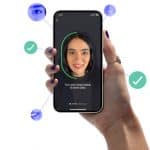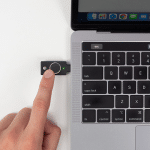Enterprises plan to spend more on identity verification

A new report shows that 91 percent of organizations in the financial services, technology, telecoms, and aviation sectors worldwide intend to increase their spending on identity verification solutions in the next one to three years.
The report from Regula says 17 percent of businesses intend is to dedicate 11-20 percent of their IT budget annually to IDV solutions, with 15 percent of businesses opting for 21-30 percent.
Remote monitoring, AI research and data at risk -- healthcare tech predictions for 2023

In addition to pressure from the COVID-19 pandemic and its aftermath, the healthcare sector has also been in the forefront of new technologies like smart devices and the use of AI.
The rate of change seems unlikely to slow down next year, so what can we expect to see in the healthcare tech sector in 2023?
Digital banking, biometric payments and more regulation -- fintech predictions for 2023

Like any other industry, the financial services sector is undergoing digital transformation. While banking and finance have historically been quite traditional, pressure from more agile startups has led larger companies to look to tech to stay competitive.
The effect of the COVID-19 pandemic has driven more people to do their banking online too. Here are the key trends that experts expect to see in the fintech sector in 2023.
Big but not so clever -- ID fraudsters go for quantity over quality

A new report reveals that 'less sophisticated' fraud -- in which doctored identity documents are readily spotted -- has jumped 37 percent in 2022.
The report from Onfido also shows that while in 2019 fraudsters tended to keep regular office hours, in 2022, fraud levels were consistent across 24 hours, seven days a week. Thanks to technology, fraudsters are more connected across the globe and are able to traverse regions and time zones, and can easily take advantage of businesses’ closed hours when staff are likely offline.
How facial recognition can help improve remote productivity

Remote working has become the norm for many following the COVID pandemic. But while it offers many benefits for both employers and workers, it can also lead to problems with productivity and stress.
A new infographic from work time management firm TrackTime24 looks at some of the issues faced by remote workers and at how improved time tracking technology using facial recognition can help.
New solution enhances facial recognition technology

Identity fraud is on the rise, with cybercriminals employing increasingly sophisticated techniques including realistic 2D/3D masks and deploying display attacks (e.g. showing a picture of a person on a screen) to try to spoof biometric verification systems.
Identity verification specialist Onfido is launching a new 'biometric liveness solution' called Motion which is aimed at increasing verification speed and ensuring that it’s seeing a real person.
Facial recognition -- the good, the bad and the getting older

Your friends may not be willing to tell you that you're looking older, but facial recognition systems have no such reservations.
Face-recognition algorithms might struggle to identify you as the same person after just five years, according to the New Scientist.
Facial recognition comes to deepin Linux -- can you trust China with your face?

deepin is one of the prettiest Linux distributions, and many people use it every day. Unfortunately, there is a big problem with the operating system -- it is developed in China. While the Chinese people are good, the government of that country is not -- it oppresses its citizens and censors a lot of information. And so, some people are wary of using any Chinese-made software. That is understandable.
Normally I am OK with using deepin Linux, despite its Chinese roots, as it is largely open source. However, with version 20.5, I am a bit hesitant. You see, the newest variant of the operating system adds optional facial recognition for gaining access to your computer. This is similar to Microsoft's Windows Hello -- something I use regularly. But Microsoft is a USA company. When it comes to deepin, can we trust China with our faces?
Using voice biometrics to stop fraud and deliver a better customer experience

Cybersecurity pros have an unenviable task: helping businesses mitigate risk and keep consumer data safe, all in the midst of a continually evolving threat landscape. Yet even in the face of daily news stories of data breaches, they manage to spot some silver linings. When it comes to digital security, each year brings a bit of good along with the bad, and cybersecurity professionals celebrate the former while reminding us we need to be constantly improving if we want to protect our customers and our companies.
A look back in the rearview shows 2021 was no different. The bad: by the end of September, the U.S. had already seen more data breaches than all of 2020. Even more concerning, a 2021 Forrester survey of individuals responsible for implementing enterprise passwordless authentication, a proven cybersecurity measure that helps defend against these breaches, showed adoption is lagging with half of the respondents less than three months into the process.
Zero trust, democratization and biometrics -- identity management predictions for 2022

Zero trust has been one of the security buzz phrases of the past year and control of identity and credentials is likely to remain a focus for businesses and consumers alike, especially as the work from home trend looks set to continue.
Here's what some of the experts think the identity field holds for us in 2022.
Who wants to be a cyborg? Quite a lot of people it seems

Would you be willing to have technology implanted in your body? A survey by marketing and communication tool Tidio reveals the extend to which people are open to 'biohacking'.
More than 75 percent of respondents say they are willing to implant a microchip for health monitoring, and 57 percent are eager to go further and transfer their consciousness to a machine or a different body and live forever as cyborgs.
The changing face of digital identity verification [Q&A]
Yubico YubiKey Bio authentication dongle uses biometrics for added security on Windows, Mac, and Linux

Portable hardware authentication dongles are pretty darn cool -- they can be a great way to secure access to various devices, applications, and services using hardware. Google offers its own Titan security keys, for instance, but the search giant likely isn't the first company that comes to mind for these products. Actually, Yubico is probably the name most associated with authentication dongles.
Believe it or not, Yubico's popular YubiKey devices have not yet been offered with biometric support. Thankfully, this changes today. You see, the all-new YubiKey Bio features a fingerprint reader for an added level of security. Not only must you physically have possession of the YubiKey Bio to use it, but you must prove you are its owner by scanning your finger.
Financial intelligence network aims to secure the cashless economy

Over the last year there has been a significant move away from using cash. In the US alone ATM withdrawals are down 58 percent, 41 percent of consumers have switched from cash to online and phone payments, while 55 percent don't plan to switch back to using cash.
But while this is convenient for the consumer it opens up more opportunities for fraud and cybercrime. Financial risk management firm Feedzai is aiming to boost digital trust, by adding pre-transaction behavioral intelligence to prevent financial crime in real-time before it happens.
Apple finally starts selling Magic Keyboard with Touch ID for M1 Mac computers

When Apple first unveiled its all-new iMac computers, owners of other M1 models, such as the Mac mini, MacBook Air, and MacBook Pro were quite excited. Why? Because the iMac had the option of a Magic Keyboard with Touch ID. This was Apple's first-ever wireless keyboard with an integrated fingerprint reader, and the iPhone-maker promised it would sell the keyboard as a standalone product in the future for use with other M1 Mac computers (not Intel).
Many consumers, including yours truly, have been religiously checking Apple's website in hopes the Magic Keyboard with Touch ID would show up for sale, but day after day, we were left with nothing but disappointment. Apple got our hopes up and then left us hanging.
Recent Headlines
BetaNews, your source for breaking tech news, reviews, and in-depth reporting since 1998.
© 1998-2025 BetaNews, Inc. All Rights Reserved. About Us - Privacy Policy - Cookie Policy - Sitemap.
